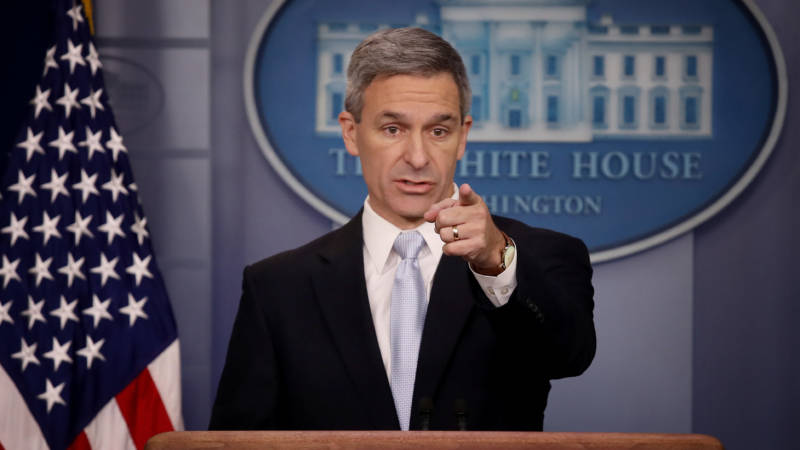“Give me your tired and your poor who can stand on their own two feet and who will not become a public charge,” Ken Cuccinelli, the acting director of U.S. Citizenship and Immigration Services, said Tuesday, twisting Emma Lazarus’s famous words on a bronze plaque at the Statue of Liberty.
Cuccinelli was speaking to NPR’s Rachel Martin about a new regulation he announced Monday that targets legal immigration. The rule denies green cards and visas to immigrants if they use — or are deemed likely to need — federal, state and local government benefits including food stamps, housing vouchers and Medicaid. The change stands to impact hundreds of thousands of immigrants who come to the United States legally every year.
The final version of the “public charge” rule is scheduled to be published Wednesday in the Federal Register. A public charge refers to a person who relies on public assistance for help. That includes more than 20% of all Americans, according to a 2015 estimate from the U.S. Census Bureau.
On Tuesday, Cuccinelli described the public charge as a “burden on the government.” He told NPR the new regulation was “part of President Trump keeping his promises.”
The new rule will go into effect Oct. 15, and only government aid used after that point will be assessed, Cuccinelli said.

9(MDAxOTAwOTE4MDEyMTkxMDAzNjczZDljZA004))
